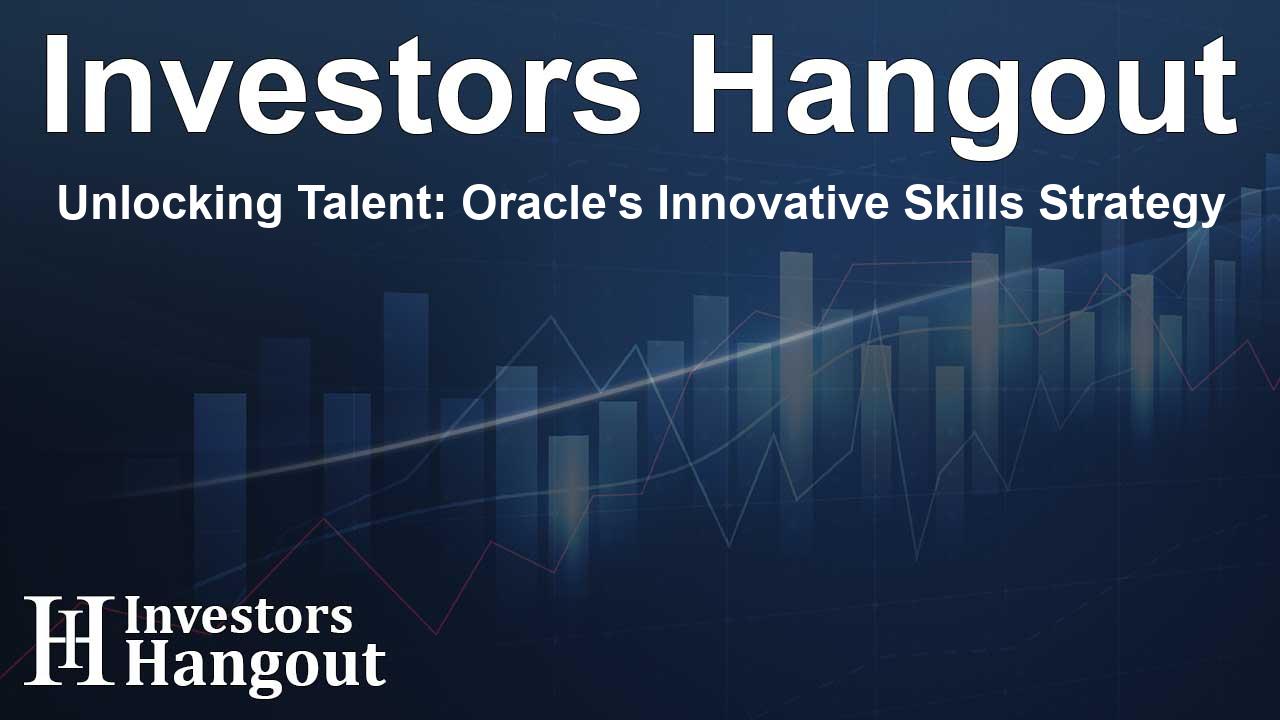Unlocking Talent: Oracle's Innovative Skills Strategy

Transforming Workforce Management with Oracle Cloud HCM
Organizations striving to build a skilled workforce can greatly benefit from innovative tools provided by Oracle. The recent advancements in Oracle Cloud HCM empower HR teams to execute a skills-based talent strategy effectively. This initiative focuses on enhancing insights, constructing a robust talent pipeline, and improving critical workforce decision-making.
Oracle Dynamic Skills: A Game Changer for HR Teams
Oracle's introduction of the open skills architecture through Oracle Dynamic Skills showcases how organizations can curate and implement a comprehensive skills strategy. This helps the HR teams understand and utilize employee skills effectively. Oracle Dynamic Skills aims to cater to businesses of all sizes and stages in their skills development journey, promising better alignment of skills with organizational needs.
The Importance of Skills-Based Strategies
In today’s competitive landscape, skills are emerging as a vital metric for gauging an organization's capabilities. Having a well-structured skills-based strategy allows for uncovering valuable insights about the workforce and attracting diverse talent. As Yvette Cameron, a senior vice president at Oracle, emphasized, the new tools will enable HR leaders to manage skills data effortlessly, adapt at any stage of their skills journey, and align skills with business goals.
Enhanced Workforce Insights and Better Decision-Making
With Oracle Dynamic Skills, companies can make smarter decisions regarding workforce management. By integrating skills data into their systems, organizations gain the ability to analyze employee strengths and identify gaps. This comprehensive approach leads to improved internal hires, enhanced career development opportunities, and a more agile workforce able to adapt to business objectives.
Key Features of Oracle Dynamic Skills
Oracle Dynamic Skills offers several powerful features to keep HR teams informed and proactive. Notable attributes include:
- AI-Powered Skills Inventory: This feature provides HR leaders with an ever-evolving catalog of their organization's skills, ensuring insights stay relevant and up-to-date.
- Data Enrichment: Combining enriched skills data from internal and external sources enhances the relevance of insights, allowing organizations to leverage existing tools effectively.
- Skills Library: An expansive pre-populated skills library is available for organizations to jumpstart their skills journey, enhancing data accuracy and facilitating informed decision-making.
- Skills Data Analysis: Flexible business intelligence tools enable HR leaders to analyze workforce skills comprehensively, making it easier to identify strengths and address skill gaps.
- Integrated Skills Intelligence: This allows seamless integration of third-party skills data, empowering HR leaders to make more informed decisions using external labor market insights.
- Multiple Language Support: Recognition of diverse workforce needs is crucial, and dynamic language support ensures that organizations can translate skills data as required globally.
Adapting to Future Workforce Demands
Organizations like Navy Federal Credit Union are already looking forward to leveraging these features to build a stronger skills foundation. As the skills landscape evolves, real-time visibility into an organization’s skills portfolio will be crucial. Understanding workforce capabilities will help HR teams make informed talent decisions that maximize performance.
Conclusion: The Future of Oracle Cloud HCM
Oracle Cloud HCM stands out as a complete solution that streamlines HR processes from recruitment to retirement, integrating AI to optimize employee management and improve overall business operations. With all workforce data consolidated on a single platform, HR teams can access pivotal insights that inform their talent strategies effectively.
Frequently Asked Questions
What is Oracle Dynamic Skills?
Oracle Dynamic Skills is a new feature within Oracle Cloud HCM that enables organizations to manage and analyze employee skills comprehensively to improve workforce performance.
How can organizations benefit from a skills-based strategy?
A skills-based strategy allows organizations to enhance talent management, make data-driven decisions, and improve overall workforce performance.
What are some key features of Oracle Dynamic Skills?
Key features include AI-powered skills inventory, data enrichment, an extensive skills library, skills data analysis tools, and integrated skills intelligence with language support.
How does Oracle Cloud HCM streamline HR processes?
Oracle Cloud HCM connects all HR processes and data, allowing for real-time insights and improving decision-making across the organization.
Why is skills data integration important for HR?
Integrating skills data helps HR teams identify strengths and gaps in workforce capabilities, enabling them to align employee skills with business priorities effectively.
About Investors Hangout
Investors Hangout is a leading online stock forum for financial discussion and learning, offering a wide range of free tools and resources. It draws in traders of all levels, who exchange market knowledge, investigate trading tactics, and keep an eye on industry developments in real time. Featuring financial articles, stock message boards, quotes, charts, company profiles, and live news updates. Through cooperative learning and a wealth of informational resources, it helps users from novices creating their first portfolios to experts honing their techniques. Join Investors Hangout today: https://investorshangout.com/
Disclaimer: The content of this article is solely for general informational purposes only; it does not represent legal, financial, or investment advice. Investors Hangout does not offer financial advice; the author is not a licensed financial advisor. Consult a qualified advisor before making any financial or investment decisions based on this article. The author's interpretation of publicly available data shapes the opinions presented here; as a result, they should not be taken as advice to purchase, sell, or hold any securities mentioned or any other investments. The author does not guarantee the accuracy, completeness, or timeliness of any material, providing it "as is." Information and market conditions may change; past performance is not indicative of future outcomes. If any of the material offered here is inaccurate, please contact us for corrections.